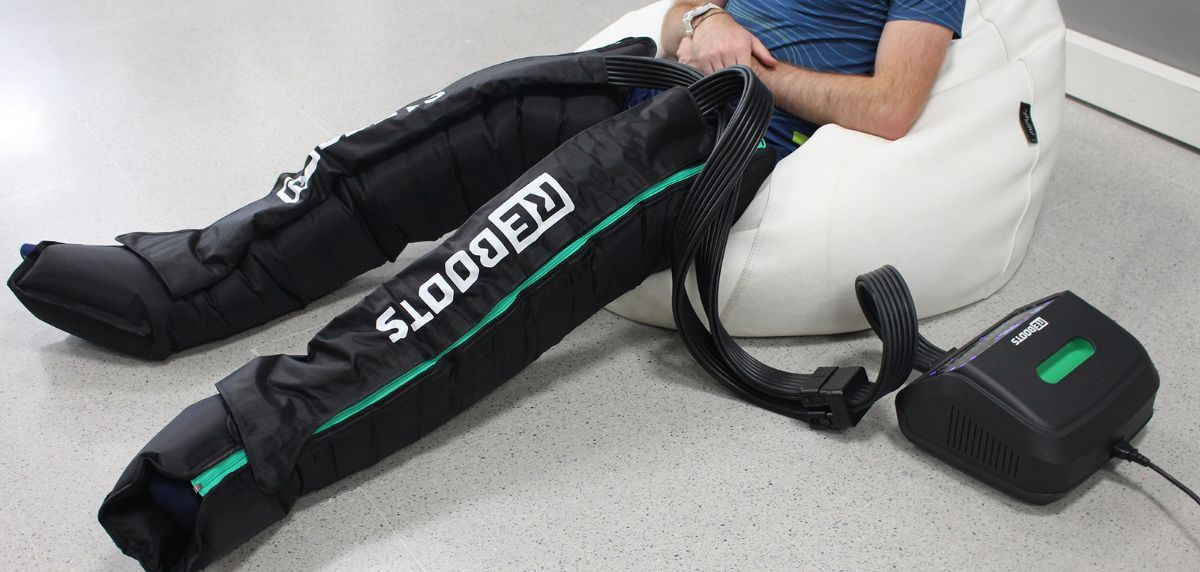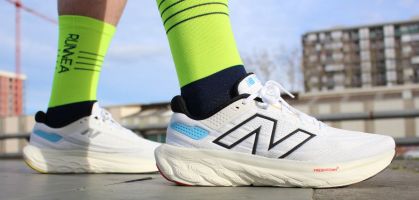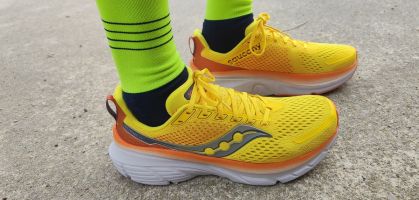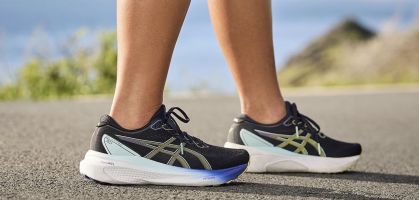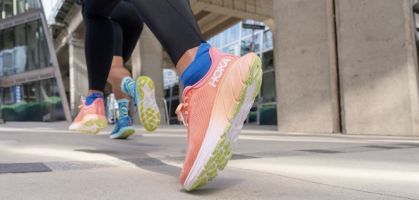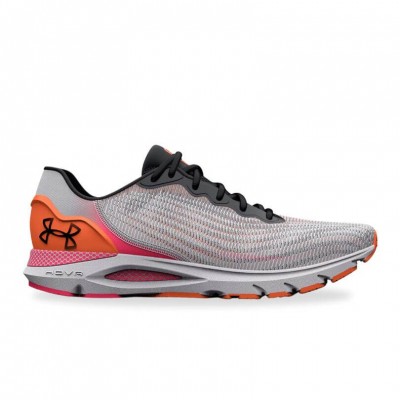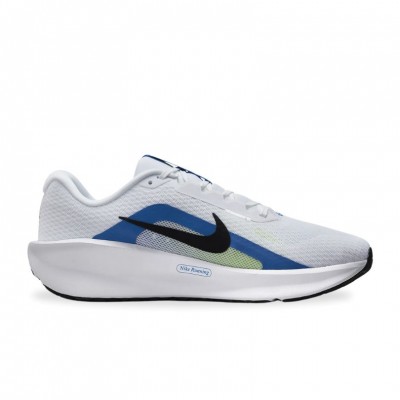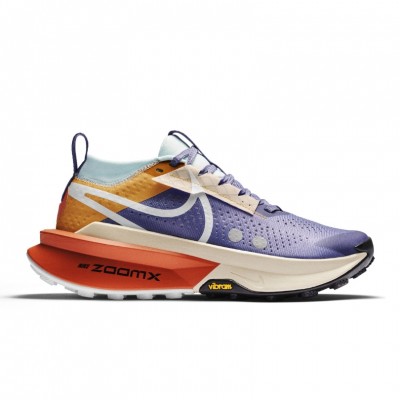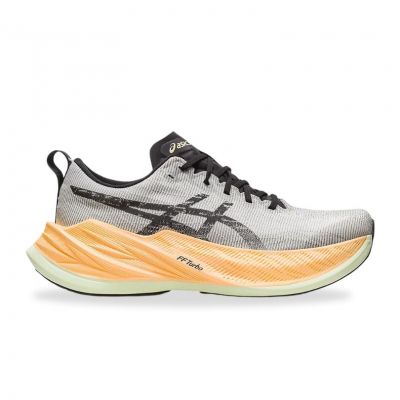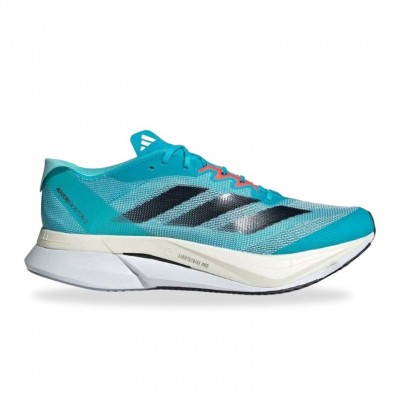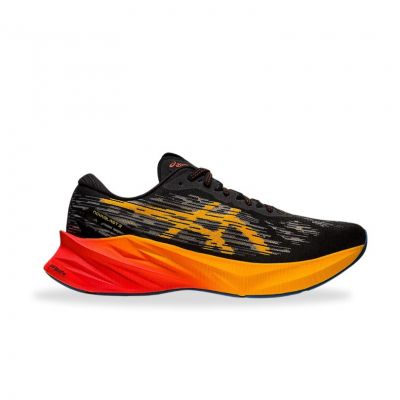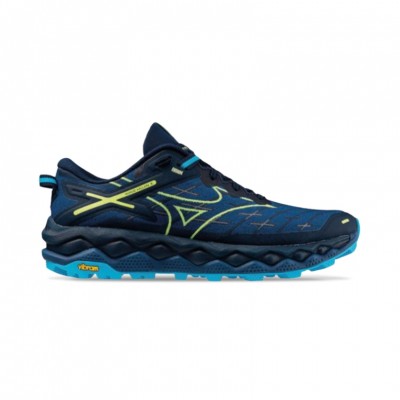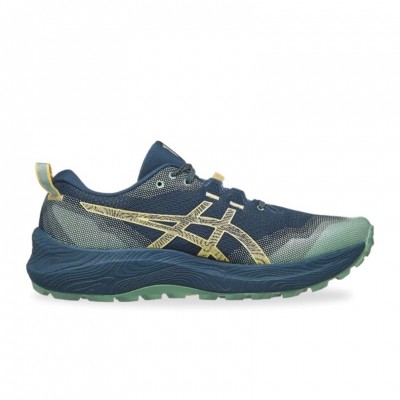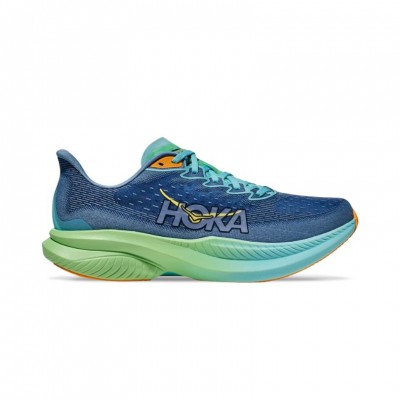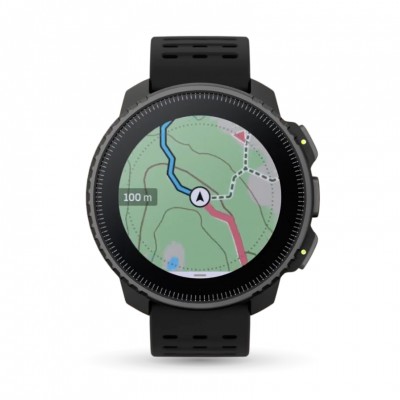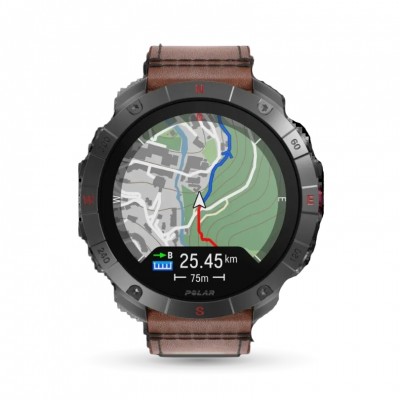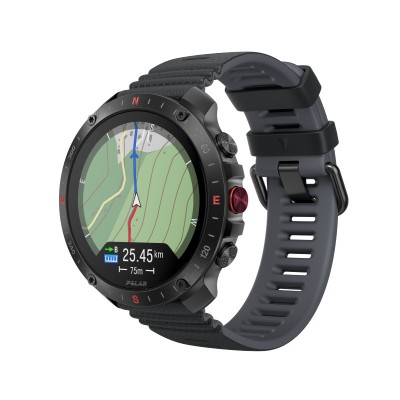In the exciting world of long-distance running, proper recovery is as important as the training itself. Runners facing challenges such as a half marathon or marathon understand that rest and recovery are critical to improving performance and preventing injury. In this context, Reboots, the leading brand of high-quality pressotherapy equipment, becomes an essential ally in the recovery process.
In this article we are going to give you seven key tips to recover faster and more effectively after a long-distance race. These tips, backed by science and the experience of professional runners, will help you keep your body in top condition and enjoy superior athletic performance.
1. Warming Up
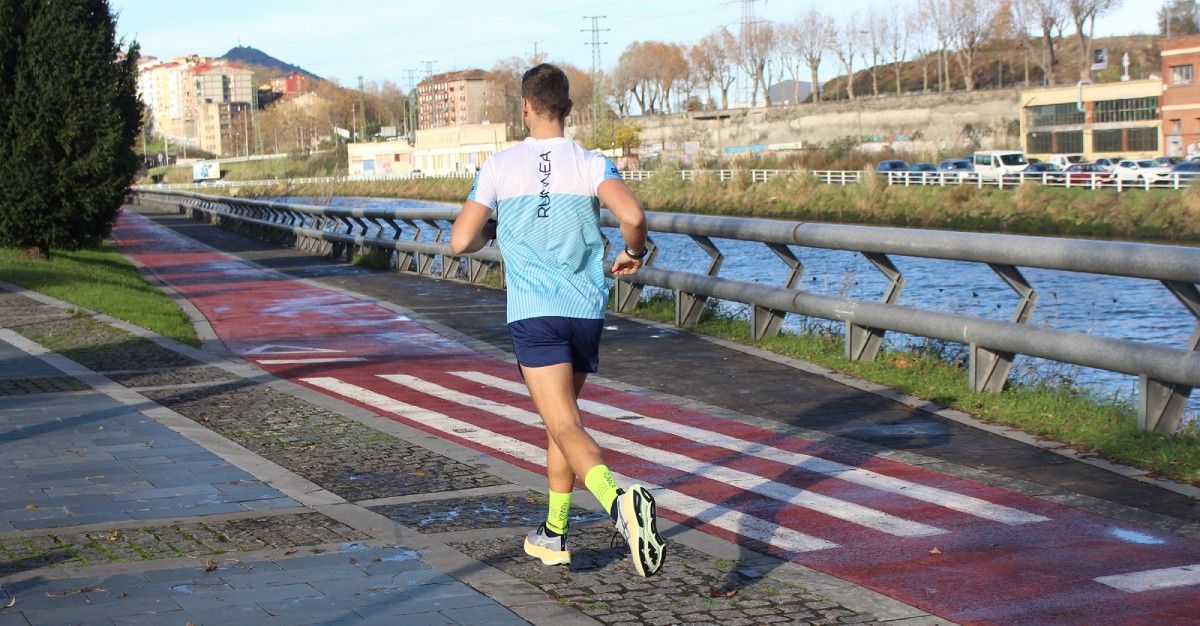
Warming up is a fundamental practice before a running race. Although it is a widely known concept, its importance lies in its ability to "activate" or "prepare" our body. During this initial phase of training, heart rate and circulation are increased, as well as the blood flow and oxygen supply to the muscles. The movement in the warm-up improves muscle flexibility and tone, thus preparing the body for the main activity, such as a running race.
Reboots pressure therapy equipment offers an effective solution to prepare the warm-up prior to a running race. By improving blood circulation and reducing muscle fatigue, these devices help runners optimally activate their muscles and joints, thus optimizing their performance on the track.
2. Replenishing lost electrolytes

During a marathon, approximately 25 liters are lost through sweating. Staying hydrated is essential to speed up the recovery process. Drinking water and sports drinks with electrolytes or salts is essential to digest essential nutrients, repair muscles and replenish fluids and minerals lost during the race.
Proper hydration is crucial for any runner and should not be overlooked.
To elaborate on this advice, it is important to note that electrolyte loss is not only about water, but also about essential minerals such as sodium, potassium and magnesium. These minerals play a crucial role in muscle contraction and nerve function. Lack of electrolytes can lead to muscle cramps, fatigue and dehydration. Therefore, in addition to drinking water, it is advisable to consume foods rich in these minerals, such as bananas, nuts and salty foods.
3. Cool down and stretching
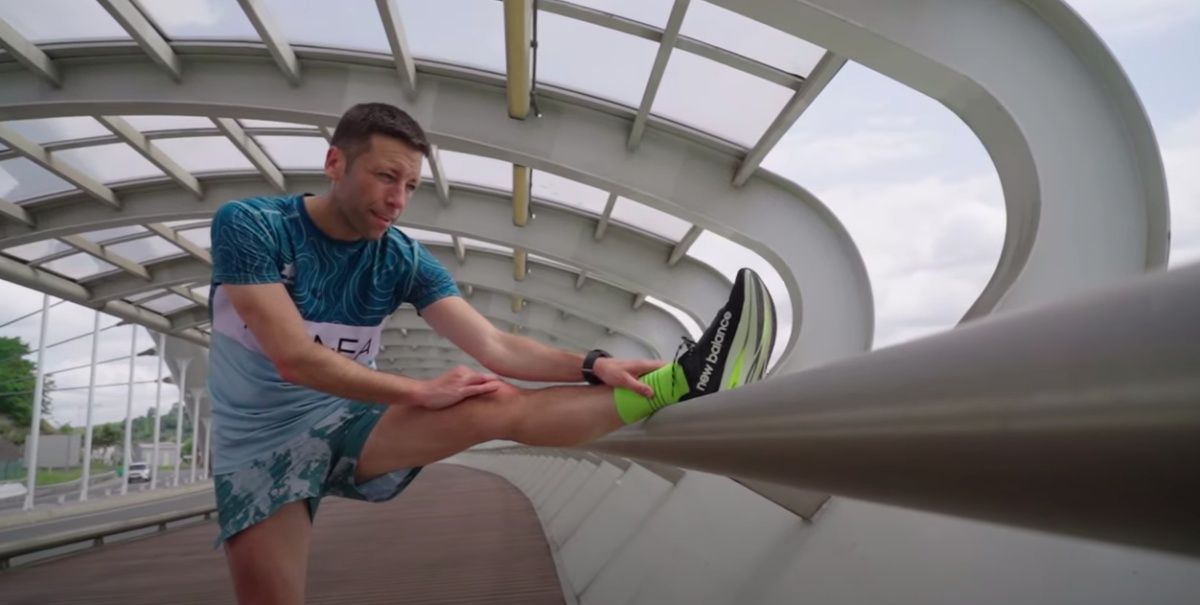
After crossing the finish line, it is important to carry out a proper cool-down phase for effective recovery. The main goal is to reduce the heart rate, and this can be achieved with a simple walk or low-intensity exercise for a short period of time. In addition, studies support the benefits of stretching after physical exercise, as it increases range of motion and improves blood flow, which helps eliminate lactic acid, responsible for muscle soreness and inflammation.
In this context, Reboots' dual thermal sleeves, which combine heat and cold, are an advanced tool to reduce inflammation and promote faster recovery.
To delve deeper into stretching, it is important to note that there are different types of stretches that runners can perform. Static stretches, where you hold a stretching position for a period of time, are ideal for improving flexibility and range of motion. On the other hand, dynamic stretches, which involve controlled, repetitive movements, are excellent for preparing muscles before running and also for cooling down after a run. Both types of stretching are valuable in a runner's recovery.
Not sure which shoe to choose?
In a few simple steps we help you to choose the ideal running shoe for you.
GO TO THE RECOMMENDER4. Carbohydrate intake
Glycogen depletion is the main factor limiting runners' performance. Therefore, it is crucial to consume carbohydrate-rich meals after running. It is important to remember that the rate of glycogen resynthesis is maximal in the first two hours after running. Consuming carbohydrates in this time interval is essential for optimal muscle recovery.
Carbohydrates are the preferred energy source for muscles during intense exercise. During a long distance race, glycogen stores in the muscles are significantly depleted. Post-race glycogen replenishment is essential to restore energy and allow faster recovery. Recommended carbohydrate sources include pasta, rice, whole grain bread, fruits and vegetables.

5. Consume protein
In addition to carbohydrates, protein is also essential in post-exercise nutrition. Proteins contain amino acids that prevent muscle protein breakdown and promote muscle synthesis. Complete protein sources containing the essential amino acid 9 are recommended, such as eggs, dairy, tofu and fish, among other foods.
Proteins play a key role in muscle repair and growth. After a long-distance run, muscles can experience micro-injuries that require repair. Protein intake facilitates this recovery process and helps maintain lean muscle mass.
6. Pressure therapy session
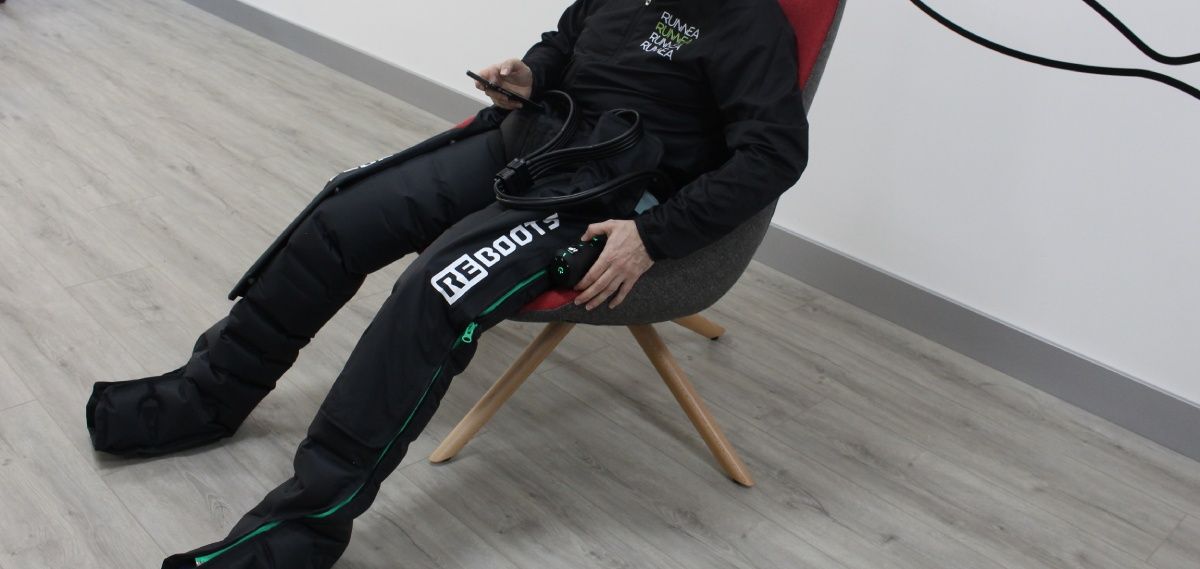
Pressure therapy is a technique that performs lymphatic drainage, improving lymph circulation and eliminating edema and other conditions resulting from poor circulation. This improvement in blood circulation leads to greater oxygenation of muscle tissues, which significantly reduces the risk of injury. Reboots professional pressotherapy equipment, with its advanced technology and high quality materials, is an excellent option to accelerate recovery in a short period of time.
Pressure therapy has become a popular tool among athletes and long-distance runners. This technique uses controlled pressure to stimulate lymphatic and blood flow, which helps eliminate toxins and reduce muscle inflammation. Pressure therapy is especially beneficial after an intense run, as it helps relieve the feeling of heavy legs and promotes faster recovery.
7. Sleep and improve sleep quality

Getting adequate sleep is essential for effective recovery. Most muscle repair and recovery occurs during sleep. Lack of sleep can lead to increased levels of cortisol, the stress hormone, and decreased levels of testosterone and insulin-like growth factor, hormones essential for muscle recovery. Therefore, rest should be a priority for any runner.
Quality sleep is a crucial component of recovery. During deep sleep, the body carries out repair and regeneration processes that are essential for athletic performance. In addition to making sure you get adequate sleep, you can improve sleep quality by avoiding caffeine before bedtime, maintaining a dark, quiet bedroom, and establishing a regular sleep routine.
Two products to consider are the Reboots recharge pillow and blanket, ideal for improving sleep quality. These generate gentle warmth, relaxing muscles and improving circulation. This promotes deep, restful sleep, helping to reduce stress and help you wake up refreshed and rested.
Conclusion
In summary, training is crucial, but recovery should not be underestimated. Striking a balance between active training and invisible training is essential to optimize sports performance. Having the right tools for faster and more effective recovery is critical.
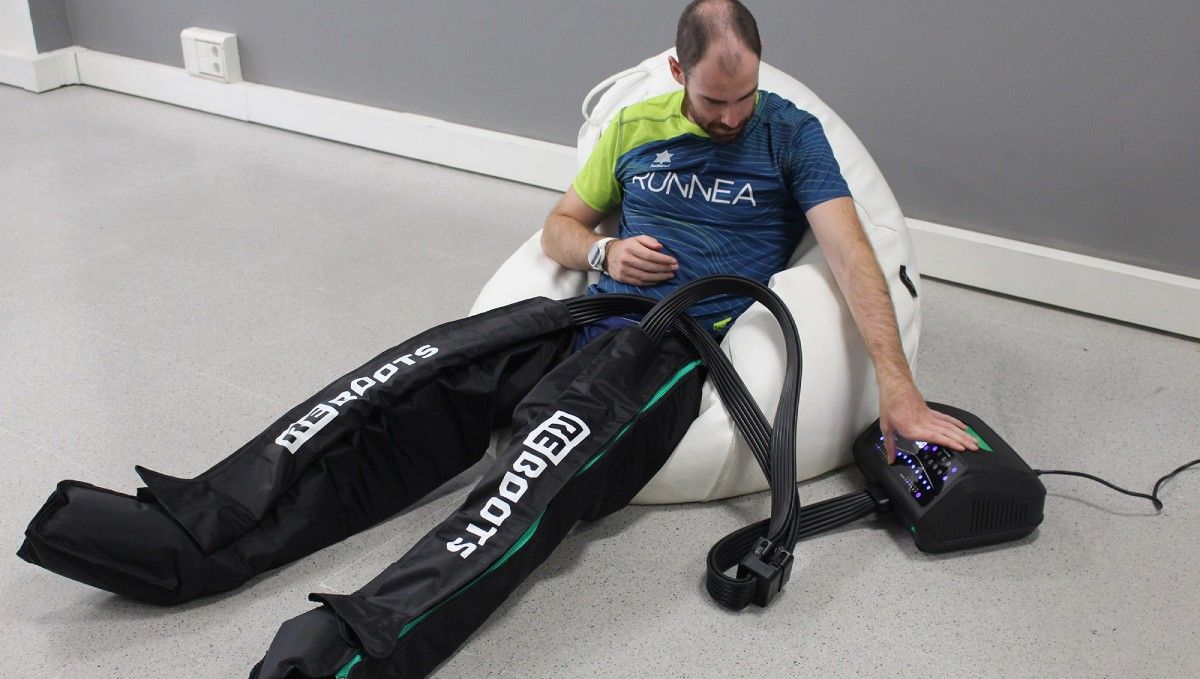
In this regard, Reboots is an indispensable ally for those looking to recover optimally after a long-distance race. Incorporating these tips into your post-race routine will help you keep your body in tip-top shape and successfully achieve your athletic goals.
The combination of adequate hydration, proper stretching, balanced carbohydrate and protein intake, pressotherapy and restorative sleep will allow you to recover faster and be ready for your next adventure in the world of long distance running. Remember that recovery is an essential part of your running journey, and taking care of your body is the key to reaching your goals and pushing your limits in every race.
Good luck in your upcoming races and in your quest for excellence as a long distance runner!
Read more news about: Running News
